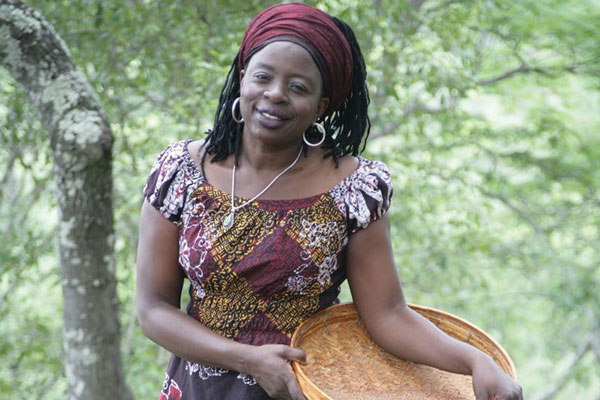
NEWLY-elected Public Service, Labour and Social Welfare minister Sekai Nzenza says she has great hope for the country. She says with the vast skills endowed in Zimbabweans, there is need for people to ditch the donor-dependence syndrome and learn how to fish on their own than relying on food handouts. The minister, who holds a PhD in International Relations, says she is the right person for the job as she has vast experience in labour and social issues.
INTERVIEW: Veneranda Langa

The following are excerpts of an interview between Nzenza (SN) and NewsDay Weekender (ND) senior parliamentary reporter, Veneranda Langa on issues pertaining to her new mandate as Public Service, Labour and Social Welfare minister.
ND: Congratulations for being appointed Labour and Social Welfare minister. Who is Nzenza and how did you come to be recognised for the top post of Labour minister?
SN: I was born and grew up in rural Chikomba, and I also did my education at Chikomba High School. For tertiary education, I went to the United Kingdom where I graduated with a Bachelor of Health Sciences Degree. I also trained as a nurse at Great Ormond Street in London. I acquired several qualifications and I am a holder of a PhD in International Relations from the University of Melbourne in Australia. I have vast experience in project management, especially the area of development and health, water and sanitation issues. I am also a writer and development practitioner, with vast experience in policy, research and communications. I also managed several companies at senior level in Australia, and Los Angeles and California in the United States. I worked alongside international strategists on developmental issues where I gained a lot of experience in strategic development and public sector reforms. I also served as chairperson and managing director of Amatheon Agri Holdings.
ND: You head a very powerful ministry which needs someone who is a good strategist. As a female with that responsibility, do you think this is too big a task for you?
SN: Not at all! I am a strong believer in gender equality and I believe capable women must be appointed to top positions. My appointment was mainly because of my background, which speaks to issues of workers and social welfare. I am good at issues to do with corporate governance and government processes, and more importantly, my expertise has to do with development of corporate sectors, getting people in the right jobs, rewarding their good performance, and capacity building and human development. Therefore, I strongly believe that women can do it. The reasons why most females are where they are, is because of gender inequalities, and a background and culture where there is lack of access of opportunities like education to girls. One finds that once a girl gets to Form 3 or 4, they are married off, especially in rural areas. As a Minister of Social Welfare, I strongly feel that we should address these injustices so that women are capable of getting high positions.
ND: Part of the mandate of your ministry is to provide resources to vulnerable groups, but with the country’s budgetary constraints, how do you intend to achieve that?
- Chamisa under fire over US$120K donation
- Mavhunga puts DeMbare into Chibuku quarterfinals
- Pension funds bet on Cabora Bassa oilfields
- Councils defy govt fire tender directive
Keep Reading
SN: The President appointed us ministers and gave us 100-day plans, and in doing so, I will prioritise issues that I know can be achieved within the 100-day plan, because it is impossible to achieve everything. I will look at public sector reforms – and I know that these will not happen in 100 days, but we need changes in the public sector to enable us to deliver and be more efficient. I will also need to reform the National Social Security Authority to see what programmes we can introduce for the vulnerable people in society. I believe that there is a lot of work to do to improve the lives of the vulnerable. I am also going to be busy and see if the kind of aid that we get as Zimbabwe is sustainable. I will work hard to get our people out of the hand-out and donor mentality. I strongly feel that in the post-colonial period, it is not good to keep relying on donors and expect to be given always. It is not helping us to be sustainable. I am working at ensuring that we are self-sustainable.
ND: Your ministry is also faced with an underpaid and angry labour force. How do you intend to ensure that workers are happy?
SN: We are also going to be looking at sustainable development goals to see how we can align them to ensure that our workforce and everyone in the country is happy. I am aware that we are working under difficult times, but I am working with the Finance minister, Mthuli Ncube, to ensure that we eradicate all problems affecting workers and the people in general so that we move towards eradication of poverty.











